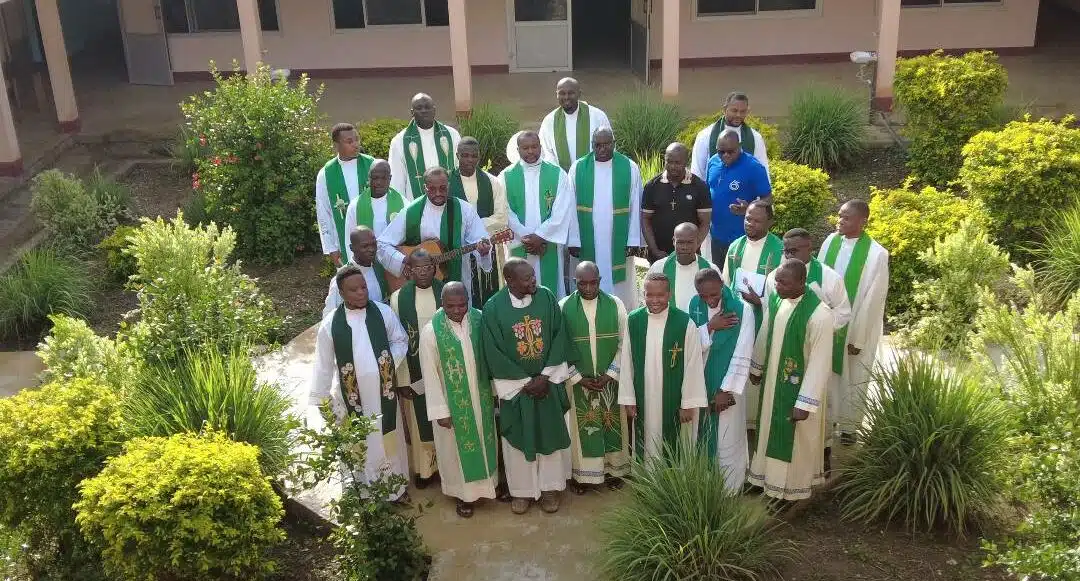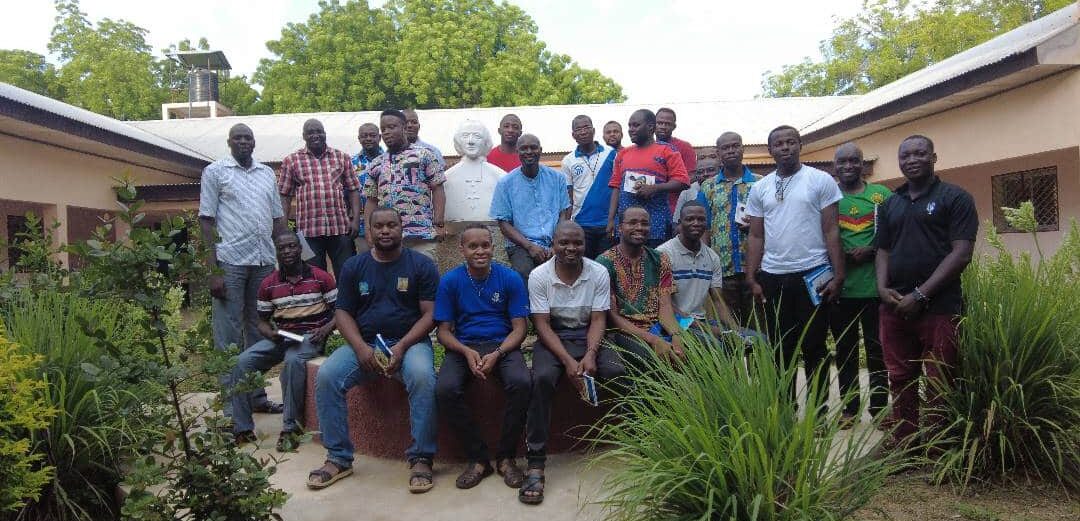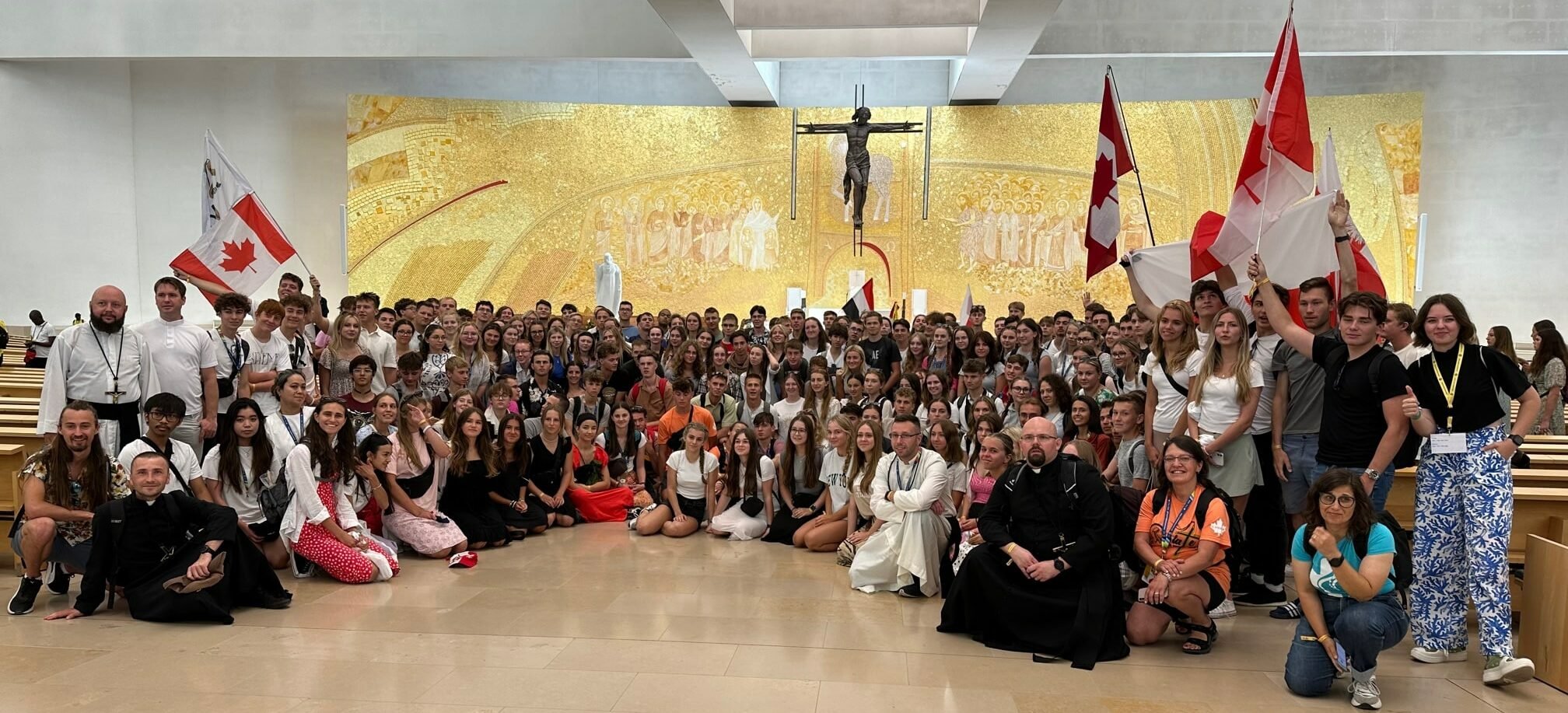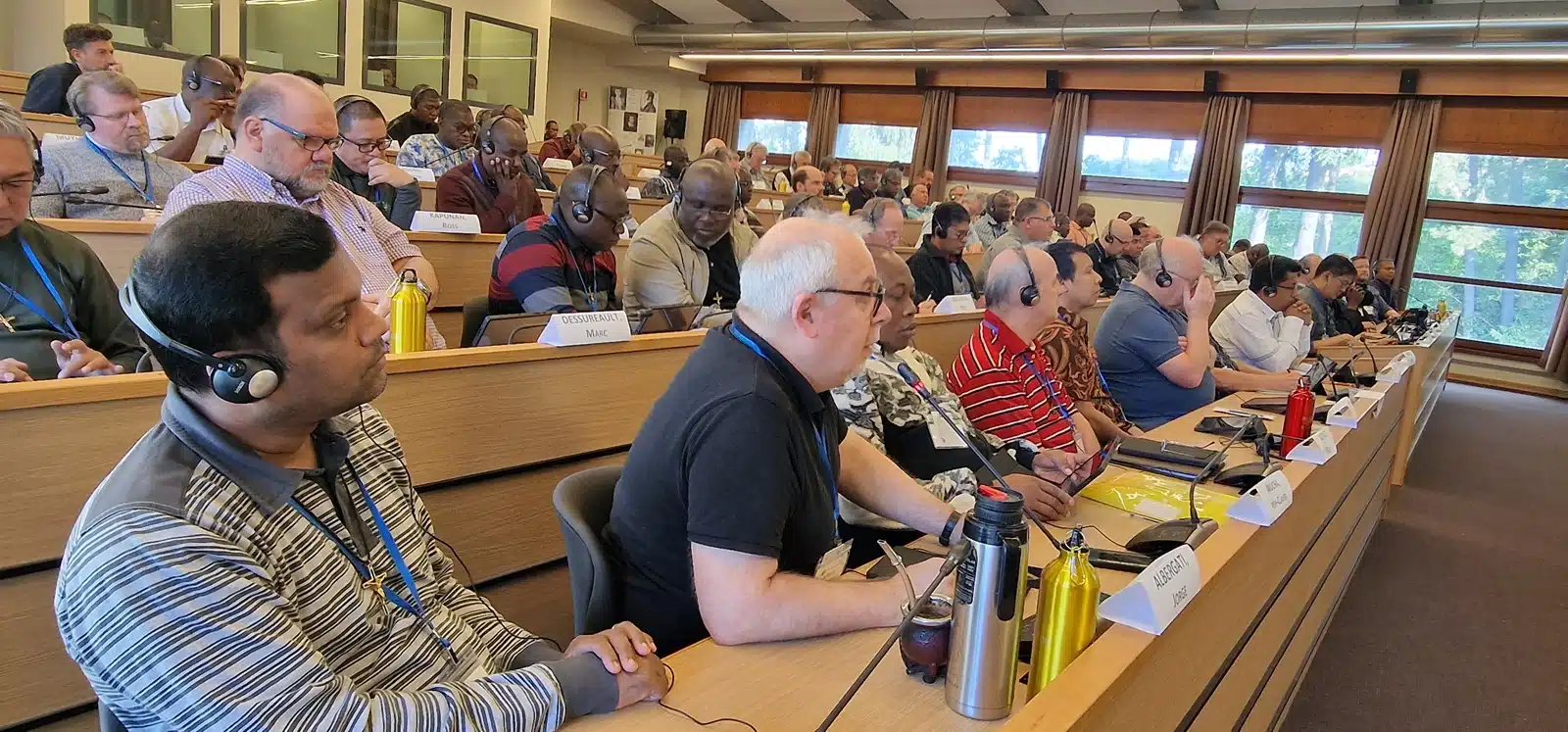Dieudonné INAWAY, OMI
Fr. Dieudonné INAWAY, OMI, was one of the twenty-two Oblates, (priests and a brother) who participated in an Ongoing formation session in Figuil for Oblates with less than 5 years of ordination and perpetual vows. He tells us how they all “listened attentively to the wisdom of their elders.”
Oblates are witnesses to Christ through their way of being
In a session moderated by Fr. Noël DOOLALILA OMI, on the first day, we took time to get to know each other better. Then, Fr. Paulin reminded us of the Founder’s vision, which the Oblates are called to perpetuate while maintaining their style of mission. Oblates are witnesses to Christ through their way of being, of preaching, of being close to the poor in their apostolate. Living in community, they must support one another for the good of the Church and the Congregation. In this way, each Oblate must give of himself for the good of his community.
Principles to live by and to hold fast to
Bishop Antoine Ntalou, sharing his experience as a priest and bishop, told us: “You and I are all former seminarians. And I like to talk to seminarians and former seminarians to find out what their impressions were when they left the formation house….”. For Mgr Ntalou, many priests feel a sense of relief after their first formation, while others regret it. However, the formation house gives each one a certain number of elements for the mission. He suggested a few principles to live by to hold fast to the first things you learn in first formation: to look at and contemplate Christ, to follow the ideal of the cross, which is a message for us who wear it, but also for others who look to us. Bishop Ntalou ended his talk by reminding us that the Church didn’t start with us. She’s an old lady, dating back more than twenty centuries, with a wealth of experience. That’s why each of us must do our part to improve the Church while remaining humble.
Called to continue the vision of the universal Church
Abbé Gabriel Djibi spoke to us about three aspects: The theological aspect: we are all believers and equal in dignity by virtue of our baptism. This being the case, we need to have a good relationship with the faithful and pass on the faith. The ministerial aspect consists in looking after the groups and movements and preparing our homilies well. Just as Christ organized the apostles around Peter, Bishops, Priests, and Deacons must be in communion with the Pope. In this communion, our job is to continue the vision of the universal Church and that of the local ordinary. On the practical aspect, the protection of minors and vulnerable people was at the heart of our reflections.
Communion, participation, and mission
Fr. Ludovic, Vicar Provincial, spoke to us about his missionary experience in the Cameroon Province. Three areas were recommended to us: The area of one’s own life: this consists in taking care of oneself and working on one’s qualities and defects. In the Oblate area, our identity must be put to work for our Province. Finally, the Christian area can be summed up in three words: communion, participation, and mission. In short, this session was an opportunity for me to reunite with my colleagues, and it encouraged me to get organized in my mission to enhance our heritage.






